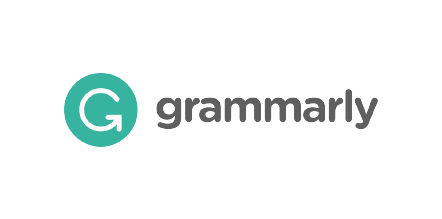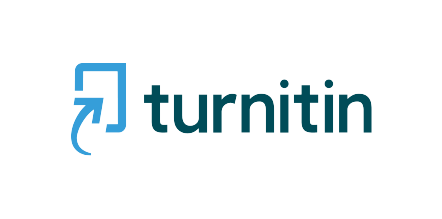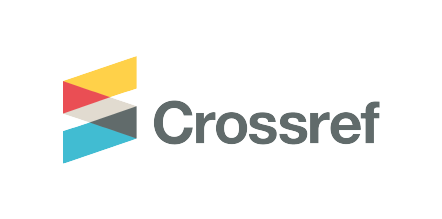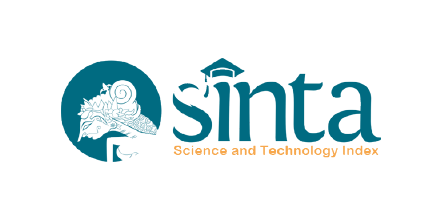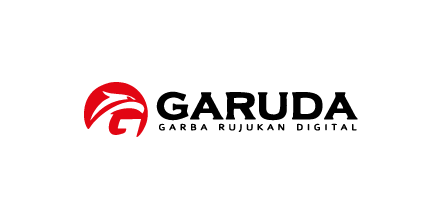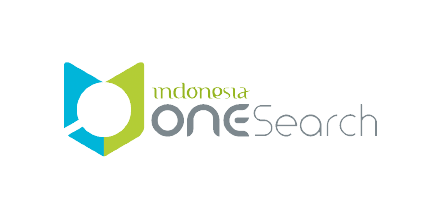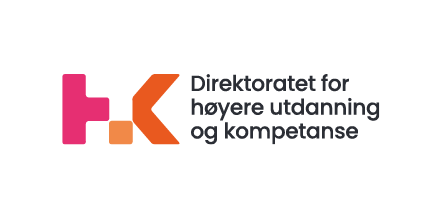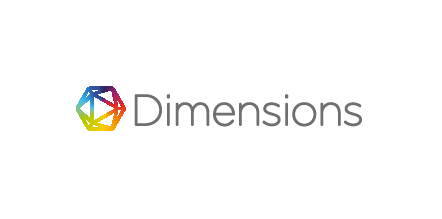Access, Universal Design and the Sustainability of Teaching Practices: a Powerful Synchronicity of Concepts at a Crucial Conjuncture for Higher Education
DOI:
https://doi.org/10.21776/ub.ijds.2017.4.2.4Keywords:
Universal Design for Learning, Inclusion, access, sustainabilityAbstract
Sustainability in Higher Education is usually interpreted as a concept applying solely to operations management and energy policy. Though the applicability of the concept to social justice is immediately tangible, few campuses have found organic and pragmatic ways to extend principles of sustainability to their equity, diversity or inclusion practices, or to convince their community of the need to do so. This study examines the unique experience of North American campus having attempted this progressive osmosis between the two concepts. Access has represented the opportunity for this rethink. As individual, retroactive accommodations become increasingly obsolete when it comes to providing access to learning to large number of students with specific needs entering post-secondary education, sustainability has become an increasingly appealing lens with which to devise a new framework for inclusion seeking systemic change in pedagogical practices. The campus in question implemented a proactive drive for the implementation of Universal Design for Learning from 2011 and this paper presents the analysis of the various and complex ways access and sustainability have become entwined in campus policies. The outcomes are particularly relevant for the Global South in that it may encourage Higher Education institutions in developing countries to avoid the temporary appeal of medical model based measures of inclusion and the precedents set in the Global North over the last two decades, and to focus instead on social model based policies that seek the development of sustainable and inclusive teaching practices from the onset.
References
Alcorn MacKay, S. (2010) Identifying Trends and Supports for Students with Autism Spectrum Disorder Transitioning into Postsecondary. Higher education Quality Council of Ontario, Toronto.
Al-Azawei, A., Serenelli, F., & Lundqvist, K. (2016) "Universal Design for Learning (UDL): A Content Analysis of Peer Reviewed Journal Papers from 2012 to 2015". Journal of the Scholarship of Teaching and Learning, Vol. 16(3), Page 39-56.
Anstead, M. (2016) Teachers Perceptions of Barriers to Universal Design for Learning. Dr. Peter Ross, Dr. Jo DeSoto, & Dr. Karen Hunt, EdD Thesis. Faculty of education, Walden University.
Artiles, A. (2003). "Special education's changing identity: Paradoxes and dilemmas in views of culture and space". Harvard Educational Review, Vol. 73(2), Page. 177-202.
Alshuwaikhat, H., & Bubakar, I. (2008) "An integrated approach to achieving campus sustainability: Assesment of the current campus environmental management practices". Proceedings of the 4th International Barcelona Conference on Higher Education, Vol.7. Higher education for sustainable development. Barcelona: GUNI. http://www.guni-rmies.net (Accessed December 1st, 2013)
Ball, G. D. S. (1999). "Building a sustainable future through transformation". Futures, Vol. 31, Page. 251-270.
Barnes, C. Oliver, M. and Barton, L. (2002) "Disability, the Academy and the Inclusive Society". In C. Barnes, M. Oliver and L. Barton (eds.) Disability Studies Today, Cambridge: Polity, Page 250-260.
Beck, T., Diaz del Castillo, P., Fovet, F., Mole, H., & Noga, B. (2014) "Applying Universal Design to disability service provision: outcome analysis of a UD audit". Journal of Post-secondary Education and Disability, Vol. 27(2), Page 209-222
Bickenbach, J., Chatterji, I., Badley, E. and Ustun T. (1999) "Models of Disablement, Universalism and the International Classification of Impairments, Disabilities and Handicaps". Social Science & Medicine, Vol. 48(9), Page. 1173-1187.
Bone, K.M. (2017) "Trapped behind the glass: crip theory and disability identity". Disability & Society, Vol. 32 (9), Page 1297-1314.
Bowe, F. G. (2000). Universal Design in Education: Teaching Non-Traditional Students. Westport, CT: Bergin & Garvey.
Britten, N., Campbell, R., Pope, C., Donovan, J., Morgan, M., & Pill, R. (2002) "Using meta-ethnography to synthesise qualitative research: a worked example". Journal of Health Services Research and Policy, Vol. 7, Page. 209-15.
Brown, R. & Parekh, G. (2010) Special Education: Structural Overview and Student Demographics,Research Report. Toronto: Research and Information Services, Toronto District School Board.
Brown, P. & Simpson, A. (2004) "The Social Model of Disability in Higher Education: attention to tensions". In: C. Barnes and G. Mercer G. (Eds. ) Disability Policy and Practice: Applying the Social Model, Leeds: The Disability Press, Page. 65-81.
Bryant, P., Coombs, A., & Pazio, M. (2014) "Are We Having Fun Yet? Institutional Resistance and the Introduction of Play and Experimentation into Learning Innovation through Social Media". Journal of Interactive Media in Education, Vol. 2, Article 4.
Cohen, B., & Winn, M.I. (2007) "Market imperfections, opportunity and Sustainable Entrepreneurship". Journal of Business Venturing, Vol. 22(1), Page. 29-49.
Colorado State University (2013) Institutionalizing UDL: How to Implement UDL and Make It Sustainable! (WWW) http://accessproject.colostate.edu/presentations/udl/consortium/june_08/workshop.php (accessed on August 19th, 2013)
Cooper, M. (2009) "Changing the Culture of the Campus: Towards an Inclusive Higher Education - Ten Years on". Conference Proceedings, European Access Network conference-York.
Department of Social Services (2012) Shut out: The Experience of People with Disabilities and their Families in Australia. Government of Australia, Canberra.
Edyburn, D. L. (2010). "Would you recognize universal design for learning if you saw it? Ten propositions for new directions for the second decade of UDL". Learning Disability Quarterly, Vol. 33, Page 33-41.
Elshof, L. (2005). "Teacher's Interpretation of Sustainable Development". International Journal of Technology and Design Education, Vol. 15(2), Page 173-186.
Fisher, K.R., Shang, X., & Xie J. (2016) Global South “North Partnerships: Intercultural Methodologies in Disability Research. In: Grech S., Soldatic K. (Eds) Disability in the Global South. International Perspectives on Social Policy, Administration, and Practice. Springer, Cham.
Gerlach, A. (2003) Sustainable Entrepreneurship and Innovation. In: University of Leeds: The 2003 Corporate Social Responsibility and Environmental Management Conference. Leeds, UK: University of Leeds, Page. 101-110.
Glasser, H. (2007) Minding the gap: the role of social learning in linking our stated desire for a more sustainable world to our everyday actions and policies. In Wals, A.E.J. (Ed.) Social Learning towards a Sustainable World. Principles, Perspectives, and Praxis (Page..35-62). Wageningen, The Netherlands: Wageningen Publishers.
Goodman, D.]. (2001) Promoting Diversity and Social Justice: Educating People from Privileged Groups. Thousand Oaks, CA: Sage Publications.
Gradel, K., & Edson, A. J. (2010). "Putting universal design for learning on the higher ed agenda". Journal of Educational Technology Systems, Vol. 38(2), Page. 111-121.
Harrison, E. (2006) "Working with Faculty Toward Universally Designed Instruction: The Process of Dynamic Course Design", Journal of Postsecondary Education and Disability, Special Issue: Universal Design in Higher Education, Vol. 19 (2), Page. 152-162.
Harry, B., & Klingner, J. (2007) "Discarding the Deficit Model". Improving Instruction for Students with Learning Needs, Vol. 64 (5), Page. 16-21.
Hatch, T. & Gardner, H. (1993) "Finding cognition in the classroom: an expanded view of human intelligence". In: G. Salomon (Ed.) Distributed Cognitions. Psychological and Educational Considerations, Cambridge: Cambridge University Press.
Heelan, A. (2015). Universal Design for Learning (UDL): Implications for Education. Paper presented at the Universal Design in Education Conference, Dublin, Ireland, 12-13 November
Hiranandani, V. (2005) "˜Towards a Critical Theory of Disability in Social Work". Critical Social Work, Vol. 6 (1). (WWW) http://www1.uwindsor.ca/criticalsocialwork/towards-a-critical-theory-of-disability-in-social-work (Accessed December 1st, 2013).
Holmberg, J., & Samuelsson, B. (2006) Drivers and Barriers for Implementing Sustainable Development in Higher Education. UNESCO Education Sector. Education for Sustainable Development in Action. Technical Paper No. 3.
Houghton, M. & Fovet, F. (2012) "Reframing Disability, reshaping the provision of services". Communique, Vol. 13 (1), Page. 16-19.
Howard, K. L. (2004). "Universal design for learning: Meeting the needs of all students". Learning and Leading with Technology, Vol. 31, Page. 26-29.
Ilieva, R., Beck, K., & Waterstone, B. (2014). "Towards sustainable internationalisation of higher education". Higher Education, Vol. 68(6), Page 875-889.
InterAcademy Council (2004) Inventing a Better Future: A Strategy for Building Worldwide Capacities in Science and Technology. InterAcademy Council.
Kelly, A., & Hess, F. (2011) Beyond Retrofitting: Innovation in Higher Education. Hudson Institute Initiative on Future Innovation, Washington, DC
Kelly, K., & van der Riet, M. (2001). "Participatory research in community settings: Processes, methods and challenges". In: M. Seedat, N. Duncan, & S. Lazarus (Eds.), Community Psychology: Theory, Method and Practice. South African and Other Perspectives (Page. 159-188). Cape Town: Oxford University Press.
Ketschau, T. (2015) "Social Justice as a Link between Sustainability and Educational Sciences". Sustainability, Vol. 7, Page. 15754-15771.
Kleemann, G.L. (2005) "Weaving silos a leadership challenge: A cross-functional team approach to supporting web-based student services". New Directions for Student Services Special Issue: Technology in Student Affairs: Supporting Student Learning and Services, Vol. (112), Page. 89-101.
Legrange, L. (2016) "˜Decolonising the university curriculum: leading article", South African Journal of Higher Education, Vol. 30(2), Page 1-30.
Leitch, S. and Palmer, I. (2010), "Analysing Texts in Context: Current Practices and New Protocols for Critical Discourse Analysis in Organization Studies". Journal of Management Studies, Vol. 47, Page 1194-1212.
Lenz, B. K., Deshler, D. D., & Kissam, B. R. (2004) Teaching Content to All: Evidence-Based Inclusive Practices in Middle and Secondary Schools. Boston, MA: Pearson Education.
Lloyd, C. (2016) "Leading Across Boundaries and Silos in a Single Bound". Community College Journal of Research and Practice, Vol. 40 (7), Page 607-614.
Lovett, B., Nelson, J.M., Lindstrom, W. (2014) "Documenting Hidden Disabilities in Higher Education: Analysis of Recent Guidance From the Association on Higher Education and Disability (AHEAD)", Journal of Disability Policy Studies, Vol 26 (1), Page 44 - 53.
Madaus, J. W. (2011) "The History of Disability Services in higher education". New Directions for Higher Education, Page 5-15.
Meekosha, H., & Soldatic, K. (2011) "Human Rights and the Global South: the case of disability". Third World Quarterly, Vol. 32 (8), Page 1383-1397.
Mole, H. (2012) "US model for inclusion of disabled students in higher education settings: the social model of disability and Universal Design". Widening Participation and Lifelong Learning, Vol. 14(3), Page 62-86.
Mole, H. & Fovet, F. (2013) "UDL - From disabilities office to mainstream class: How the tools of a minority are addressing the aspirations of the student body at large". Collected Essays on Learning and Teaching, Vol. 6, Page. 121-126.
Moore, J. (2005) "Is higher Education ready for transformative learning? A question explored in the study of sustainability". Journal of transformative Education, Vol. 3 (1), Page. 76-91.
Olssen, M., & Peters, M. A. (2005). "Neoliberalism, higher education and the knowledge economy: From the free market to knowledge capitalism". Journal of Educational Policy, Vol. 20(3), Page. 313-345.
Ralabate, P. K. (2011). Universal Design for Learning: Meeting the Needs of All Students . (WWW) The ASHA Leader. http://www.asha.org/Publications/leader/2011/110830/Universal-Design-for-Learning--Meeting-the-Needs-of-All-Students/ (Accessed December 1st, 2013).
Reason, P., & Bradbury, H. (2001). "Introduction: Inquiry and participation in search of a world worthy of human aspiration". In: P. Reason & H. Bradbury (Eds.), Handbook of Action Research: Participative Inquiry and Practice (Page. 1-14). London: Sage.
Reid, A., Petocz, P. (2006). "University Lecturers' Understanding of Sustainability". Higher Education, Vol. 51(1), Page 105-123.
Rose, D. H., Harbour, W. S., Johnston, C. S., Daley, S. G., & Abarbanell, L. (2006). "Universal design for learning in postsecondary education: Reflections on principles and their application". Journal of Postsecondary Education and Disability, Vol. 19(2), Page. 17.
Rose, D. H., Meyer, A., & Hitchcock, C. (2005) The Universally Designed Classroom: Accessible Curriculum and Digital Technologies. Cambridge, MA: Harvard Education Press.
Sadana, J. (2009) The Coding Manual for Qualitative Researchers. Sage, London.
Scholz, R., Lang, D., Wiek, A. et al. (2006) "Transdisciplinary case studies as a means of sustainability learning: historical framework and theory". International Journal of Sustainability in Higher Education, Vol. 7, Page. 226-51.
Schroeder, C. (1999) "Partnership: An imperative for enhancing student learning and institutional effectiveness". New Directions for Higher Education, Vol. 87, Page. 5-18.
Shulman, L. S., & Shulman, J. H. (2007). "How and what teachers learn: A shifting perspective". Journal of Curriculum Studies, Vol. 36(2), Page 257-271.
Sidhu, R. (2015). "Using postcolonial scholarship to address equity in transnational higher education", Learning and Teaching, 8(1), Page 73-94.
Smollan, R. (2011). "Engaging with resistance to change". University of Auckland Business Review. Vol. 13(1), Page. 12-15.
Snowden, D. (2000), "The Art and Science of Story or Are You Sitting Uncomfortably? Part 1: Gathering and Harvesting the Raw Material", Business Information Review, Vol. 17(3), Page 147- 156.
Sterling, S. (2001) Sustainable Education Re-visioning Learning & Change. Darlington Books.
Strange, C.C. and Banning, J.H. (2001) Educating by Design: Creating Campus Learning Environments that Work. San Francisco: Jossey-Bass.
Sutton, J., & Austin, Z. (2015). "Qualitative Research: Data Collection, Analysis, and Management". The Canadian Journal of Hospital Pharmacy, Vol. 68(3), Page 226-231.
Swail, W.S., Redd, K.E. and Perna, L.W. (2003) "˜Retaining Minority Students in Higher Education: A Framework for Success". ASHE-ERIC Higher Education Report, Vol. 30(2). San Francisco: Jossey-Bass.
Swain, J., & French, S. (2000) "Towards an affirmative model of disability", Disability and Society, Vol. 15 (4), Page. 569-82.
Swain, J., French, S., Barnes, C., & Thomas, C. (Eds.) (2004) Disabling Barriers Enabling Environments. 2d ed. London: SAGE.
Swap, W., Leonard, D., Shields, M., and Abrams, L. (2001) "Using mentoring and storytelling to transfer knowledge in the workplace", Journal of Management Information Systems, Vol. 18(1), Page. 95-114.
Swart, E. & Pettipher, R. (2011), "Perspectives on inclusive education", in E. Landsberg, D. Kruger & E. Swart (eds.), Addressing barriers to learning in South Africa, Page 1-27, Van Schaik, Pretoria, South Africa.
Tegmark-Chita, M., Gravel, J.W., Serpa, M. deL. B., Domings, Y., & Rose, D.H. (2012) "Using the Universal Design for Learning framework to support culturally diverse learners", Journal of Education, Vol. 192(1), Page. 17-22.
Thurmond, V. (2001). "The point of triangulation". Journal of Nursing Scholarship, 33(3), Page. 254-256.
Tomlinson, C. A. (2001) How to Differentiate Instruction in Mixed Ability Classrooms (2nd ed.). Alexandria, VA: Association for Supervision and Curriculum Development.
Wagner, M., Cameto, R., & Newman, L. (2003). "Youth with disabilities: A changing Population". A report of findings from the National Longitudinal Transition Study (NLTS) and the National Longitudinal Transition Study-2 (NLTS2). Menlo Park, CA: SRI International.
Wals, A. E. J. (2007). "Introduction". In Wals, A.E.J. (Ed.) Social Learning towards a Sustainable World. Principles, Perspectives, and Praxis (Page.17-32). Wageningen, The Netherlands: Wageningen Publishers.
Wals, A. & Jickling, B. (2002),"Sustainability in higher education: From doublethink and newspeak to critical thinking and meaningful learning", International Journal of Sustainability in Higher Education, Vol. 3(3), Page. 221-232.
Weigel, Van B. (2002) Deep Learning for a Digital Age: Technology's Untapped Potential To Enrich Higher Education, San Francisco: Jossey-Bass.
Downloads
Published
How to Cite
License
Copyright (c) 2017 Frederic Fovet

This work is licensed under a Creative Commons Attribution-NonCommercial 4.0 International License.







